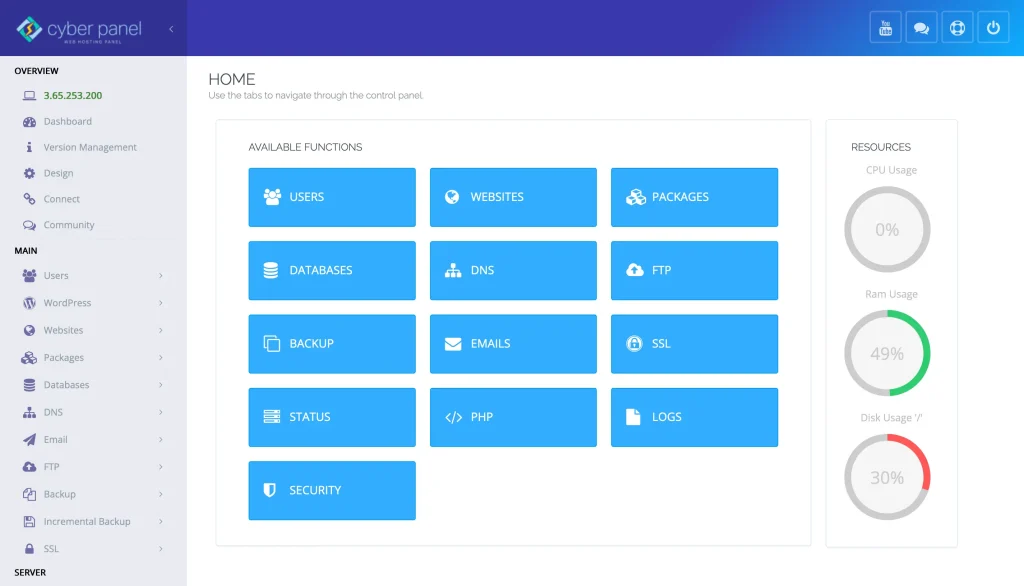In the present digital age, everyone needs secure, private, and encrypted internet access. We have a tool that is famous for its reliability, flexibility, and open-source foundation. It is OpenVPN Linux. No matter, you are using Ubuntu, Arch, or any other Linux distros, OpenVPN is here for full control over your VPN connections. And you know what, it is enterprise-grade encryption.
So, why just know about OpenVPN Linux? This article is going to explore it from the ground up. We will discuss how to install, configure, and troubleshoot OpenVPN on Linux. It will also include popular distros like Ubuntu and Arch Linux. This guide is your everything if you are protecting personal data, accessing geo-restricted content, or setting up a business-grade VPN server.
Let’s explore OpenVPN Linux together!
What is OpenVPN Linux?
It is an open-source VPN protocol. It uses SSL/TLS for encryption. Also, it is famous for high performance, security, and cross-platform support. OpenVPN Linux is the implementation of the OpenVPN client or server software on Linux distributions for secured tunneling of network traffic.
Benefits of Using OpenVPN on Linux:
Now, let’s find out the benefits of using OpenVPN on Linux:
- It is 100% free and open-source.
- It can work with most Linux distributions.
- It can also support robust encryption (AES-256, TLS 1.3).
- It also bypasses firewalls and geo-blocks.
How to Install OpenVPN Linux Ubuntu?
Here is how to install OpenVPN Linux on Ubuntu.
Get exclusive access to all things tech-savvy, and be the first to receive
the latest updates directly in your inbox.
Step 1: Updating the System
sudo apt update && sudo apt upgrade
Step 2: Installing OpenVPN and Required Tools
sudo apt install openvpn unzip
Step 3: Adding Configuration Files
Get .ovpn files from your VPN provider and place them in /etc/openvpn/ or your home directory.
Step 4: Connecting to VPN
sudo openvpn --config your-vpn-file.ovpn
How to Set Up OpenVPN Arch Linux
Arch is here to gain more control, but requires manual setup. Here is how to set up OpenVPN Arch Linux:
Step 1: Updating the system
sudo pacman -Syu
Step 2: Installing OpenVPN
sudo pacman -S openvpn
Step 3: Adding and Using Configuration
Place your .ovpn file in any directory (e.g., ~/vpn), and run:

sudo openvpn --config ~/vpn/yourfile.ovpn
Here is how to make it autostart with systemd:
sudo cp yourfile.ovpn /etc/openvpn/client/client.conf
sudo systemctl start openvpn-client@client
sudo systemctl enable openvpn-client@client
Command Breakdown: What Happens When You Run OpenVPN
When you run:
sudo openvpn --config myvpn.ovpn
This happens:
- The config file is parsed.
- Certificates and keys are validated.
- A tunnel interface (usually
tun0) is created. - Routes are changed to redirect traffic through the tunnel.
- You gain encrypted, private access to the VPN server.
How to Know The VPN is Working
Here is how to verify VPN is working:
1. Checking IP Address:
curl ifconfig.me
2. Checking the Interface:
ip a
3. Use ping to Test Connectivity:
ping google.com
Create Your Own OpenVPN Server
An individual possesses the capability to establish and operate their personal OpenVPN server. This setup perfectly suits team collaboration needs while providing remote accessibility and complete control options.
Steps:
- Acquire a virtual private server running either Ubuntu or Arch Linux.
- Execute the installation process for the OpenVPN server through:
- OpenSSL combined with Easy-RSA represents a manual approach.
- The utilization of automated tools such as openvpn-install.sh
- Establish digital certificates alongside network routes while configuring firewall rules.
- Distribute .ovpn configuration documents to client systems.
Best Practices to Use OpenVPN Linux
| Practice | Description |
|---|---|
| Use strong encryption | AES-256-GCM with TLS-auth |
| Use DNS leak protection | Route all DNS queries through VPN tunnel |
| Block internet on disconnect | Use iptables or kill-switch settings |
| Use systemd for auto-start | Persistent connection across reboots |
| Rotate credentials | Especially for multi-user environments |
Common Issues and Fixes
| Issue | Cause | Fix |
|---|---|---|
Cannot resolve host | DNS issue | Use public DNS like 1.1.1.1 or 8.8.8.8 |
AUTH_FAILED error | Wrong username or password | Double-check credentials |
No tun0 interface | Missing kernel module | Install or load tun |
| Internet drops after connect | Bad routes or DNS leak | Add route-nopull, manually configure DNS |
| Systemd service fails | Wrong file name or missing conf | Check /etc/openvpn/client/client.conf |
The Role of CyberPanel in VPN Hosting

The web hosting control panel known as CyberPanel represents a contemporary solution constructed upon OpenLiteSpeed technology. The system lacks direct VPN configuration capabilities, yet remains essential for VPN hosting setups.
- It is possible to configure and run your personal OpenVPN server by utilizing a VPS that has CyberPanel set up.
- Employ CyberPanel to oversee website management alongside DNS configurations and SSL certificates while controlling firewall settings.
- Integrate VPN client configurations by direct SSH access.
- Integrate OpenVPN with CyberPanel to establish encrypted connections for accessing your hosted web applications and private dashboards.
You gain total management capabilities over a secure Linux server ecosystem while maintaining complete control and transparency.
Frequently Asked Questions: Arch Linux OpenVPN
1. How to set up OpenVPN on a Linux system?
OpenVPN installation is achievable through the software management tool integrated into your Linux distribution.
2. Is OpenVPN free to use?
OpenVPN is an entirely free and open-source software platform.
3. What steps are required to configure OpenVPN for automatic connection during Linux startup?
To configure OpenVPN to launch during system boot, you need to activate its startup service.
Final Thoughts!
In a nutshell, OpenVPN provides end-to-end encrypted web access across Ubuntu, Arch, and other distros. It gives users complete transparency and control.
OpenVPN Linux maintains its leadership position in individual privacy protection to corporate VPN server management.
Is your Linux system prepared for security measures right now? Install OpenVPN to gain control over your network traffic.



